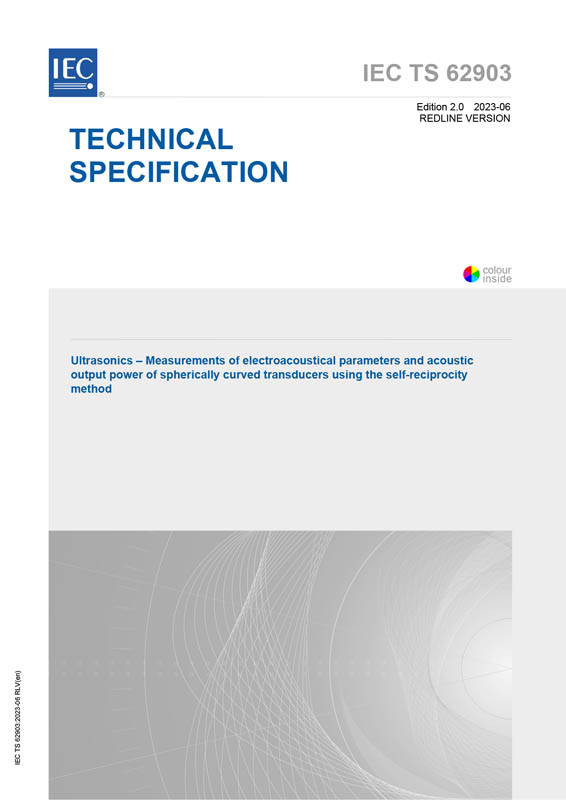IEC TS 62903:2023 RLV
Ultrasonics - Measurements of electroacoustical parameters and acoustic output power of spherically curved transducers using the self-reciprocity method
Ausgabedatum:
2023-06
Edition:
2.0
Sprache: EN - englisch
Seitenzahl: 109 VDE-Artnr.: 251938
IEC TS 62903:2023 RLV contains both the official IEC International Standard and its Redline version. The Redline version is available in English only and provides you with a quick and easy way to compare all the changes between the official IEC Standard and its previous edition.
IEC TS 62903:2023:
a ) establishes the free-field convergent spherical wave self-reciprocity method for ultrasonic transducer calibration,
b) establishes the measurement conditions and experimental procedure required to determine the transducer's electroacoustic parameters and acoustic output power using the self-reciprocity method,
c) establishes the criteria for checking the reciprocity of these transducers and the linear range of the focused field, and
d) provides guiding information for the assessment of the overall measurement uncertainties for radiation conductance.
This document is applicable to:
1) circular spherically curved concave focusing transducers without a centric hole working in the linear amplitude range,
2) measurements in the frequency range 0,5 MHz to 15 MHz, and
3) acoustic pressure amplitudes in the focused field within the linear amplitude range.
Characterization and sensitivity calibration of hydrophones using the reciprocity method are not addressed in this document but covered in IEC 62127-2 and IEC 60565-1.
IEC TS 62903:2023 cancels and replaces the first edition published in 2018. This edition constitutes a technical revision. This edition includes the following significant technical changes with respect to the previous edition:
a) Several quantities are recognized as complex-valued quantities in the definitions and in the main text.
b) Annex I was added to provide typical measurement ranges and to provide example calibration results.


